| | In this edition: Why brands are betting on Nigeria, DR Congo’s soccer deal, mobile money, and the Lo͏ ͏ ͏ ͏ ͏ ͏ |
| |  | Africa |  |
| |
|
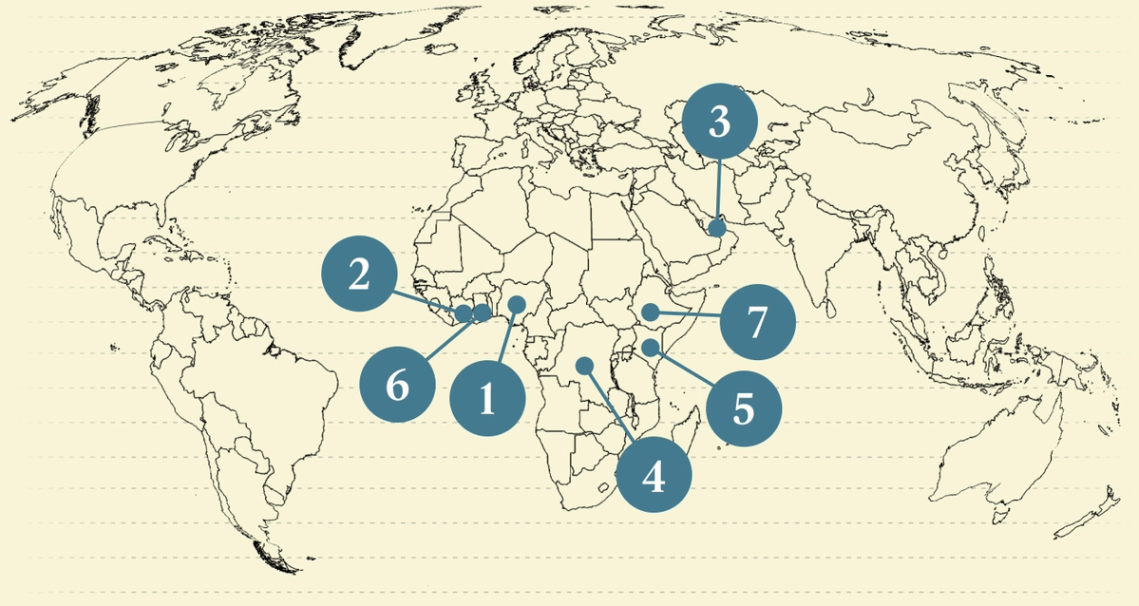 - Brands tap wealthy Nigerians
- Côte d’Ivoire’s US pitch
- Startup funding boost
- DR Congo’s soccer deals
- Mobile money savings
- Ghana’s graft bust
- Weekend Reads
 London’s mayor goes to Lagos. |
|
Adidas targets wealthy Nigerians |
| | 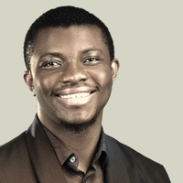 | Alexander Onukwue |
| |
 Alexander Onukwue/Semafor Alexander Onukwue/SemaforAdidas is expanding in Nigeria, making it the latest lifestyle brand to bet on the country as the economy shows cautious signs of recovery. The opening this month of a 1,400 square meter store in Lagos — the German company’s largest in West Africa — is a bid to target upmarket Nigerians whose purchasing power has been less affected by the skyrocketing inflation that has squeezed many consumers in the last two years following devaluations of the naira. Africa’s most populous nation has a large number of affluent shoppers relative to other countries on the continent, despite them making up only a small proportion of the country’s inhabitants. “Nigerians have the purchasing power but people underestimate it,” Vincent Kangni, the store’s manager, told Semafor, adding that the store’s ambition is for people who travel to Dubai or Paris for quality retail services to experience the same at home. |
|
Côte d’Ivoire seeks US imports |
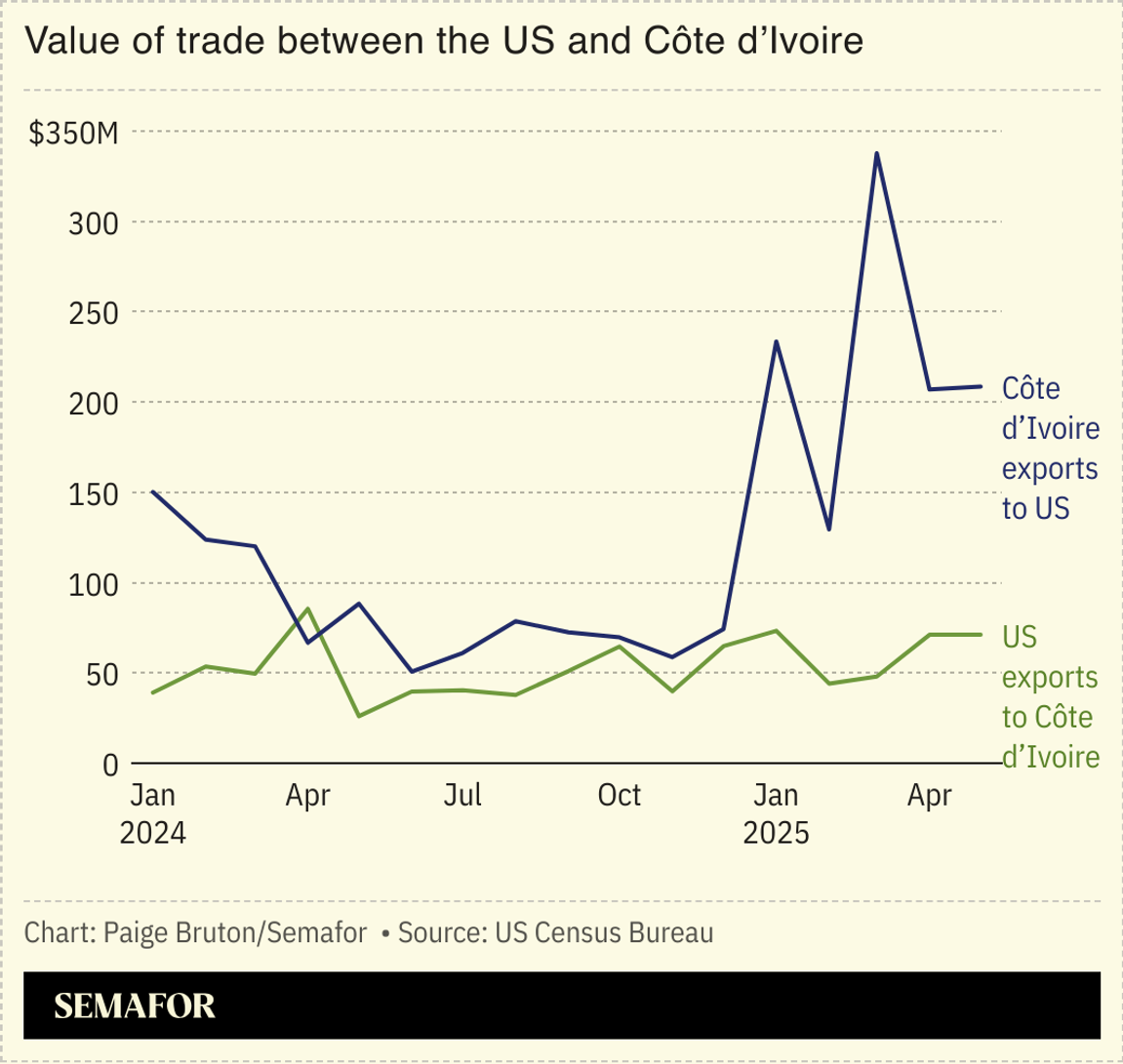 Côte d’Ivoire officials met with the State Department in Washington this week to lobby for greater American agricultural imports to Francophone West Africa’s largest economy. Sidi Tiémoko Touré, the Ivorian minister for animal and fisheries resources, told Semafor that his country — one of the continent’s largest importers of pork from nations such as Brazil — could be buying more regularly from the US. “There is a large opportunity in our country for US businesses to export to us,” he said. The discussions come against the backdrop of the Trump administration’s plans to impose higher tariffs on countries with which the US has trade imbalances. Touré, however, stressed that Côte d’Ivoire had already been working on creating greater incentives for more Anglophone businesses to invest and trade with it even before Washington’s tariffs’ push. The US and Côte d’Ivoire traded around $1.6 billion in goods last year, mostly Ivorian agricultural products such as cocoa and cashew nuts exported to the US. Most of the Ivorian exports would have qualified under the AGOA preferential trade agreement, with no tariffs. — Yinka Adegoke |
|
| | 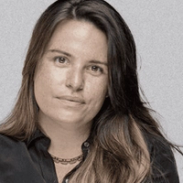 | Kelsey Warner |
| |
 A view of Abu Dhabi, UAE. Sina Schuldt/dpa via Reuters. A view of Abu Dhabi, UAE. Sina Schuldt/dpa via Reuters.Venture capital firm 500 Global will pour up to $300 million over the next two years into startups addressing urgent challenges in emerging markets including in Africa. Former Gates Foundation executive Dr. Alaa Murabit has been tapped to lead the firm’s new Sustainable Growth practice from a new office in Abu Dhabi, with the aim of increasing co-investments with sovereign wealth funds, philanthropic organizations, and governments, according to a statement seen by Semafor. Investment targets will aim to tackle issues like climate adaptation, food and health systems, fertility, digital infrastructure, and gender equity. |
|
DR Congo taps sponsorship deals |
 Albert Gea/Reuters Albert Gea/ReutersDR Congo inked a $51 million shirt sponsorship deal with Spanish football giant FC Barcelona, its third such partnership this year to boost tourism amid an ongoing conflict in the country’s east. The Central African nation has signed similar agreements in recent months with Italian giants AC Milan and the French league’s AS Monaco. The partnerships, which will vary in terms of how DR Congo is featured on the teams’ jerseys, will champion its “Heart of Africa” tagline. But the deals have already raised criticism from some of the clubs’ fan groups who are concerned about Kinshasa’s human rights record. In football circles, the Barcelona deal is being framed as a club desperate to raise funds in an increasingly expensive sport amid rising wages and transfer fees. It follows in the steps of its much smaller neighbor Rwanda, which has inked key sponsorship deals with leading European clubs including London’s Arsenal, Bayern Munich, and Paris St. Germain over the past few years. DR Congo spokespeople did not respond to Semafor’s enquiries. — Yinka |
|
Mobile money drives savings rise |
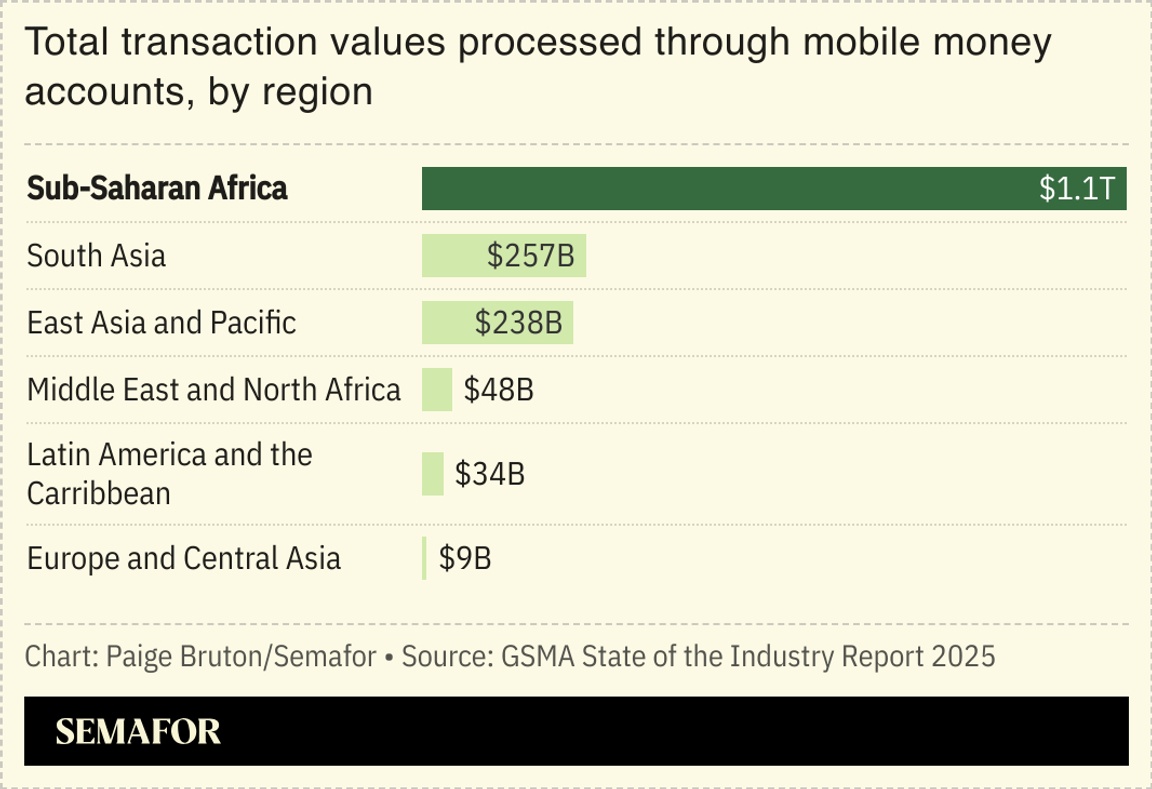 The growing use of mobile money has driven a sharp rise in the number of sub-Saharan Africans who save money through formal channels. According to the World Bank’s Global Findex Database report, the share of adults with formal savings stood at 35% in 2024, a 12 percentage point increase from 2021. Some 40% of sub-Saharan Africans had a mobile money account, as of 2024, up from 27% three years earlier. “Once adults have these formal accounts and become comfortable using them, digital savings follow very strongly,” Michael Wiegand, director of inclusive financial systems at the Gates Foundation, which funded the research, told Semafor. The report’s authors said higher personal savings through formal institutions would support national financial systems, making more funds available for investment and innovation. — Alexis Akwagyiram |
|
Person of Interest: Mustapha Abdul-Hamid |
 Mustapha Abdul-Hamid/Sandister Tei/Wikimedia Creative Commons Photo Mustapha Abdul-Hamid/Sandister Tei/Wikimedia Creative Commons PhotoMustapha Abdul-Hamid, the former head of Ghana’s national petroleum regulator, was charged over a $28 million corruption case, part of President John Mahama’s flagship campaign to fight graft and retrieve misappropriated state funds. Abdul-Hamid is one of six people and three companies facing 25 charges — including extortion by a public officer and money laundering. He is also accused of receiving $2.3 million directly, becoming a high-profile target in the oil sector, which is vital to Ghana’s economy. Abdul-Hamid, who was in the top regulatory role from 2021-24, has denied any wrongdoing. “I have never taken a bribe or been part of any illicit scheme during my time at the NPA,” he told AFP. “I am willing to cooperate with the state to clear my name in court.” |
|
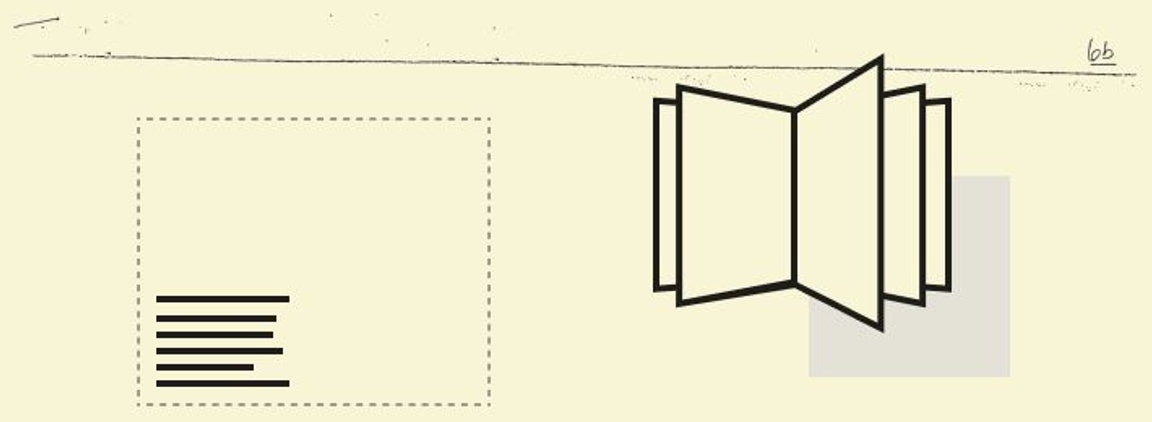 - Developing countries in Africa are pushing back against foreign tech companies’ use of their citizens’ data, Damilare Dosunmu writes for Rest of World. Despite more African governments recognizing the economic benefits of data, efforts to attract investment from Big Tech in local data centers have been difficult: “We told them no more waivers — that we need a road map for when they are coming to Nigeria,” the country’s technology regulator said, after more than four years of demands.
- Increased Chinese engagement and investment in Africa hinges not just on Beijing’s interest but on Africa’s ability to seize these opportunities, argues Huiyi Chen in The Diplomat. For the continent to maximize Beijing’s offerings, particularly against other developing competitors, Africa must “sharpen its own value proposition,” and ask: “How do we move from diplomatic words to domestic wins?” the outlet writes.
- Ethiopia has become known as the “cradle of humankind,” but for many years, there were no local evolutionary scientists to study the country’s wealth of human fossil discoveries, Fred Harter writes in The Guardian. His interview with the East African country’s first paleoanthropologist, Berhane Asfaw, explores some of the highlights of the 1,300-strong fossil collection housed in the national museum in Addis Ababa, some dating back more than 5 million years.
- The essayist Feyi Fawehinmi argues that the legacy of the late Nigerian President Muhammadu Buhari is as a leader who only showed “remarkable energy when his own interests were threatened.” Fawehinmi notes that Nigeria’s growth trajectory took a downward turn in his first term as a democratically-elected president after he imposed the “command economics” approach he had deployed as a 1980s military leader. It created a “lost generation of young Nigerians with credentials but no prospects.”
- Big Tech companies should consider whether they have a role in ensuring fairness in Africa’s mining sector, writes Karen Allen for the Institute for Security Studies. While smartphones and other technology rely heavily on the world’s critical minerals — of which Africa hosts 30% of the global reserves — the continent tends to benefit comparatively little from the trillions of dollars spent by the global tech sector. As the G20 summit in South Africa nears, “the continent needs tech diplomats to negotiate fairer deals,” Allen argues.
- After weeks of deadly protests, Kenya’s President William Ruto is being described as potentially the country’s most hated leader in recent history, Basillioh Rukanga writes for the BBC. However, Ruto himself seems confused: “All this chaos, why wasn’t it directed at [former presidents] Moi, Mwai Kibaki, Uhuru Kenyatta…?” In the article, several experts debate where the “unprecedented” backlash against Ruto may have come from, and why it is unique.
|
|
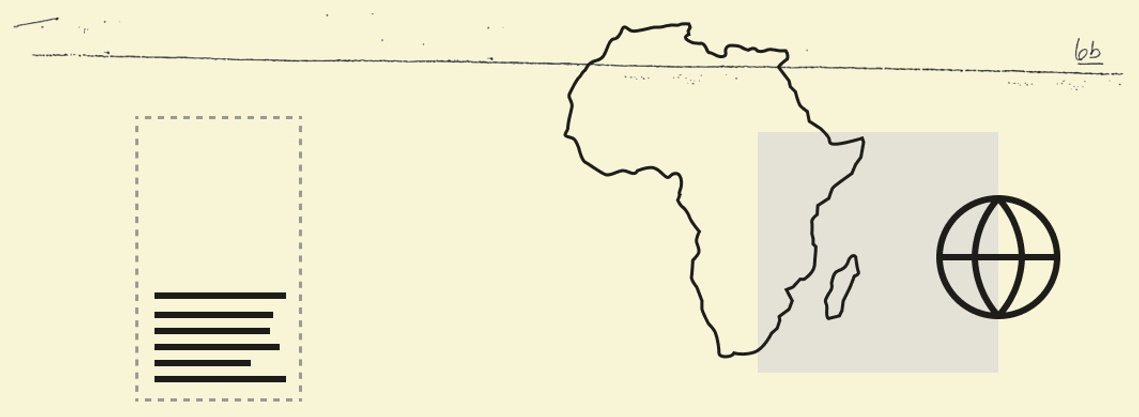 Business & Macro |
|
|